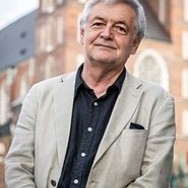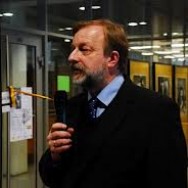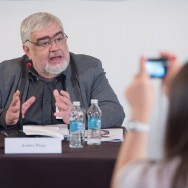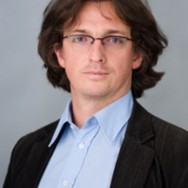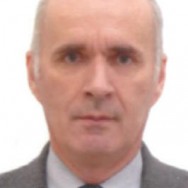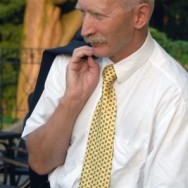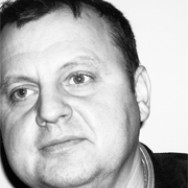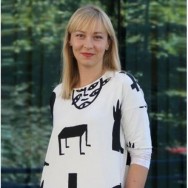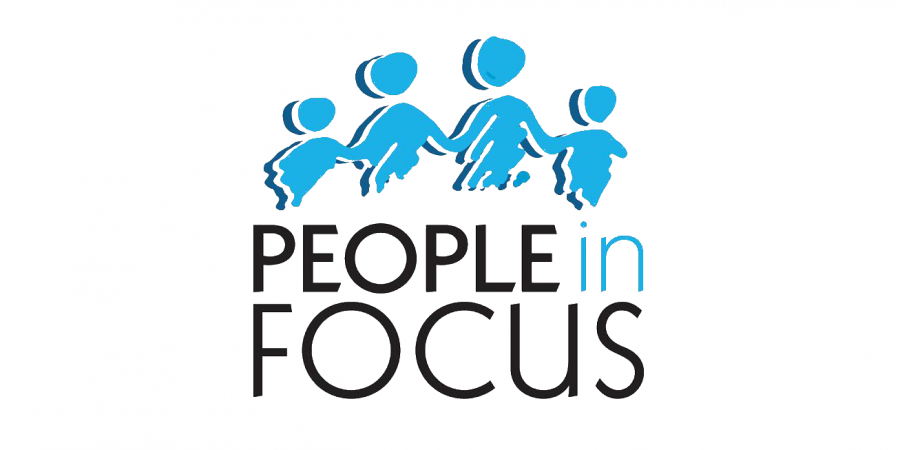Ambassador of Republic of Poland to Ukraine and former director of the Polish-Ukrainian Cooperation Foundation (PAUCI) which manages the trans-border projects with Ukraine, Moldova, Georgia and Armenia. Previously program director for ZNAK Foundation in Krakow and the editor of “Tygodnik Powszechny”. As a journalist, he covered the Romanian Revolution and war in the former Yugoslavia. Author of two documentary books on the Balkans and a novel Scent of the Angel which is based on his work experience in the Balkans and Eastern Europe. He has been working for the Polish and international media. As a conflict resolution journalism trainer and media consultant he co-operated with the Rutgers University of New Jersey, MU Columbia School of Journalism, Jagiellonian University of Krakow, IREX Pro Media, Groeningen University and other institutions. He was involved in journalism and civil society trainings in Bosnia, Slovakia, Ukraine, Romania and Poland.
Experts
Katarzyna Piotrowska
Katarzyna Piotrowska specializes in the protection and shaping of cultural landscapes, the protection of industrial heritage and the history of gardens. She has more than 20 years of experience in the protection and management of cultural heritage. She is a member of the International Council for the Protection of Monuments ICOMOS and the International Committee for the Protection of Industrial Heritage TICCIH. She has worked for many years with ICCROM, and advisory organization to the World Heritage Committee, participating in training and other work on the implementation of the Convention. She has participated in the work of national and international expert teams. She has a number of studies and publications in the filed of heritage conservation and management.
Krzysztof Pleśniarowicz
Professor of Philology and Management & Administration. Main interests: theory of literature, science of theatrical matters, cultural management. 1994-2000 Director of Cricoteka Centre for the Documentation of the Art of Tadeusz Kantor, Krakow. Visiting Professor at Cleveland State University (1992) and at the University of Rochester (2000). Author of numerous books, e.g. The Dead Memory Machine(1994). Tadeusz Kantor's Theatre of Death (2000).
Andrei Pleșu
Born in Bucharest, he studied Art History at the National University of Arts in Bucharest, where he taught from 1980 to 1982. Between 1991 and 1997 he was Professor of Philosophy of Religion at the Department of Philosophy, University of Bucharest. After the fall of the communist regime he was appointed Minister of Culture (1989-1991) and Minister of Foreign Affairs (1997-1999). He held several other important public positions, such as: Member of the National Council for the Study of the Securitate Archives, Presidential Adviser on International Affairs, or Director of the Institute of History of Religion of the Romanian Academy. In 1994 he founded the New Europe College - Institute for Advanced Study in Bucharest, and was its first Rector until 2014. He is currently the President of the New Europe Foundation. He founded the cultural magazine Dilema Veche and is very active in contributing to this and other journals. The topics of his books range from art history, philosophy, and history of religion to theology and ethics, and include: Minima moralia, On Angels: Exposition for a Post-Modern World, Parabolele lui Iisus. Adevărul ca poveste / Jesus’ Parables. Truth as Story.
Eszter Pócs
Born in Kecskemét; she has been working in the Kecskemét Animation Film Studio founded by her mother – an animated film Director – for ten years. She has always been interested in animated films and film making and claims that “animation is visual poetry, where creators can express their thoughts and feelings about the world in a free and individual way”. At present, she deals mainly with film making. She has taken part in the making of many foreign and domestic films but Hungarian Folk Tales is her favourite work. She is currently working on some further episodes of this series.
Szabolcs Pogonyi
Assistant Professor in the Nationalism Studies Program at Central European University. He received his PhD in 2008 in Philosophy from ELTE, University of Budapest, where he specialized in political theory. His current research in political theory focuses on normative and institutional questions of nationalism studies, citizenship theory, debates about multiculturalism, standards of minority rights protection and distributive justice. He is member of the EUDO Citizenship research consortium. He is the author of several articles in political theory and editor of books in the history of political thought. His papers in citizenship studies were published in Nationalities Papers, Ethnopolitics, the ECMI Yearbook and the EUDO Citizenship paper series. Szabolcs Pogonyi is also the editor of Phronesis, a Hungarian political philosophy quarterly and BudaPost, a daily review of Hungarian news.
Pavol Popjak
First Secretary at the Embassy of the Slovak Republic in Warsaw dealing with EU affairs. Previous diplomatic post in Paris and Brussels. Former Country Representative for the Slovak part of Carpathian Euroregion seated in Bardejov. Graduated from the Comenius University in social and economic geography, post-graduate studies on public administration at Academia Istropolitana in Bratislava.
Czesław Porębski
Philosopher and ethicist; professor at the Cracow University of Economics, Jagiellonian University, Tischner European University in Krakow and International Academy of Philosophy in Liechtenstein. He has spent some time at the Grand Valley State University and at the University of Vienna. He has lectured in Geneva, Freiburg, Tilburg, Vienna, Graz, Uppsala and Stockholm.
Grzegorz Pożarlik
MA in Sociology at the Jagiellonian University. PhD in Humanities at the Jagiellonian University. Assistant professor at the Centre for European Studies, Jagiellonian University. Coordinator of the MA in European Studies programme. Authors of numerous articles about European citizenship, enlargement, the entrance of Poland into the UE. Participated in international conferences relating European issues. Teaches in the Centre for European Studies at Jagiellonian University, in Department of Politics at the University of Bristol, in the Institute of European Integration at the National University of Lviv and in the Centre for European Studies at the University of Vienna.
Aleksandra Przegalińska
PhD in philosophy of artificial intelligence, assistant Professor at Kozminski University in Warsaw, recently visiting scholar at The New School for Social Research/ Brown University in New York City (2014). In 2011, she worked as the Chairman of Audiovisual Working Party at the Council of European Union in Brussels and as an international representative of the Ministry of Culture and National Heritage. As a William J. Fulbright Scholar, she also majored in Sociology at The New School for Social Research in New York (2012), where she participated in research on identity in virtual reality, with particular emphasis on Second Life. Her primary research interest includes consequences of introducing artificial intelligence systems to people’s social and professional sphere.

